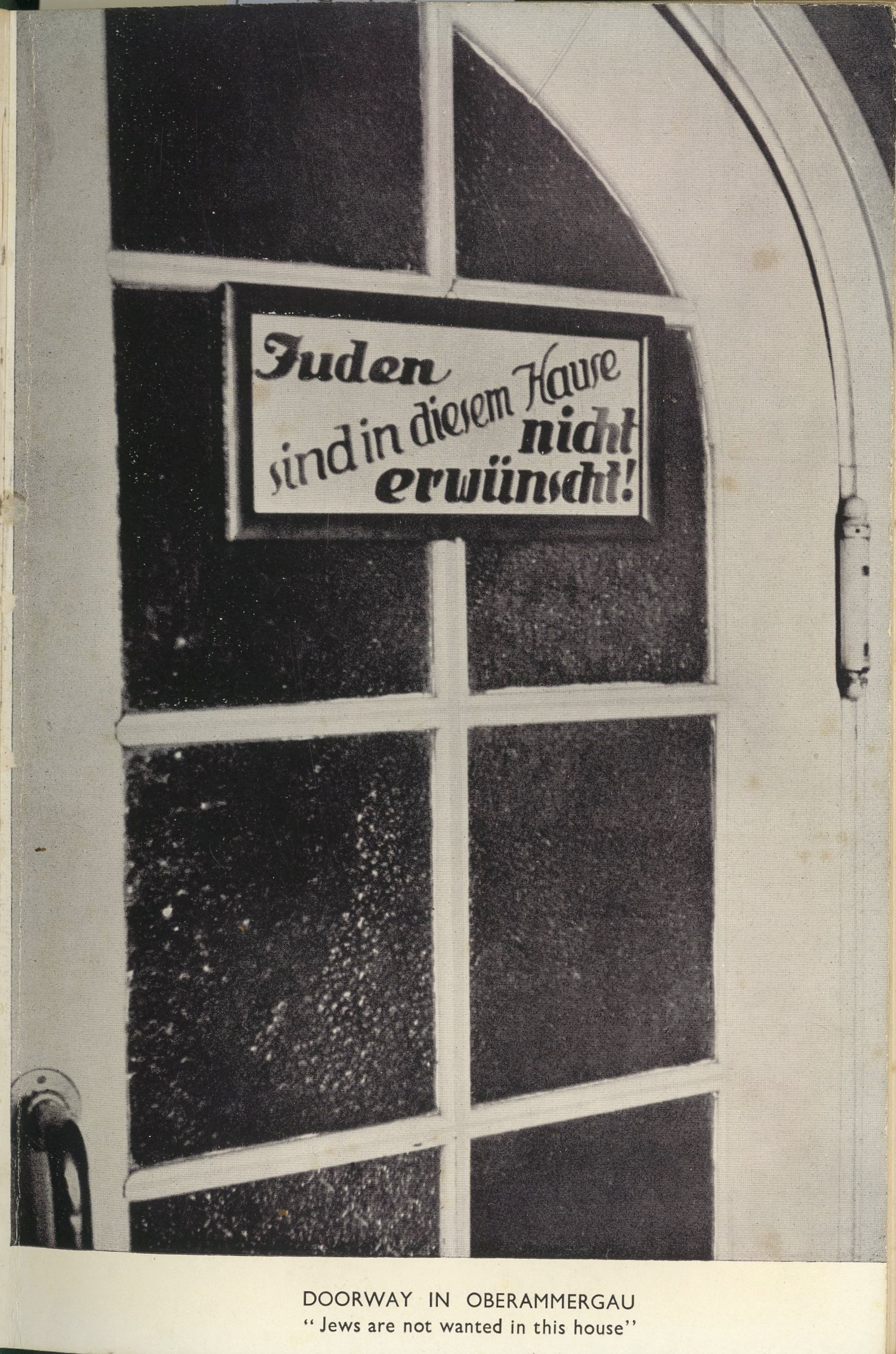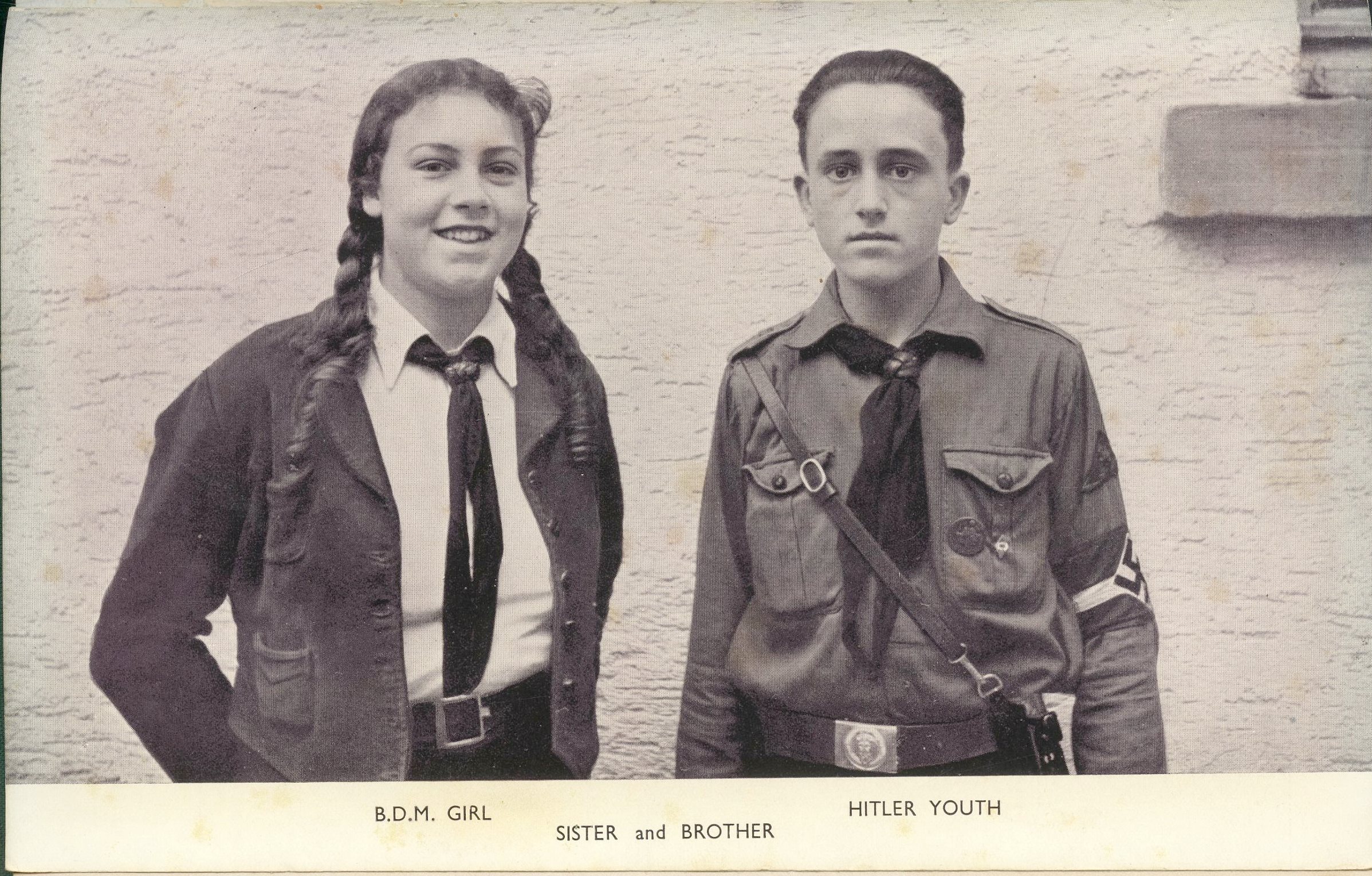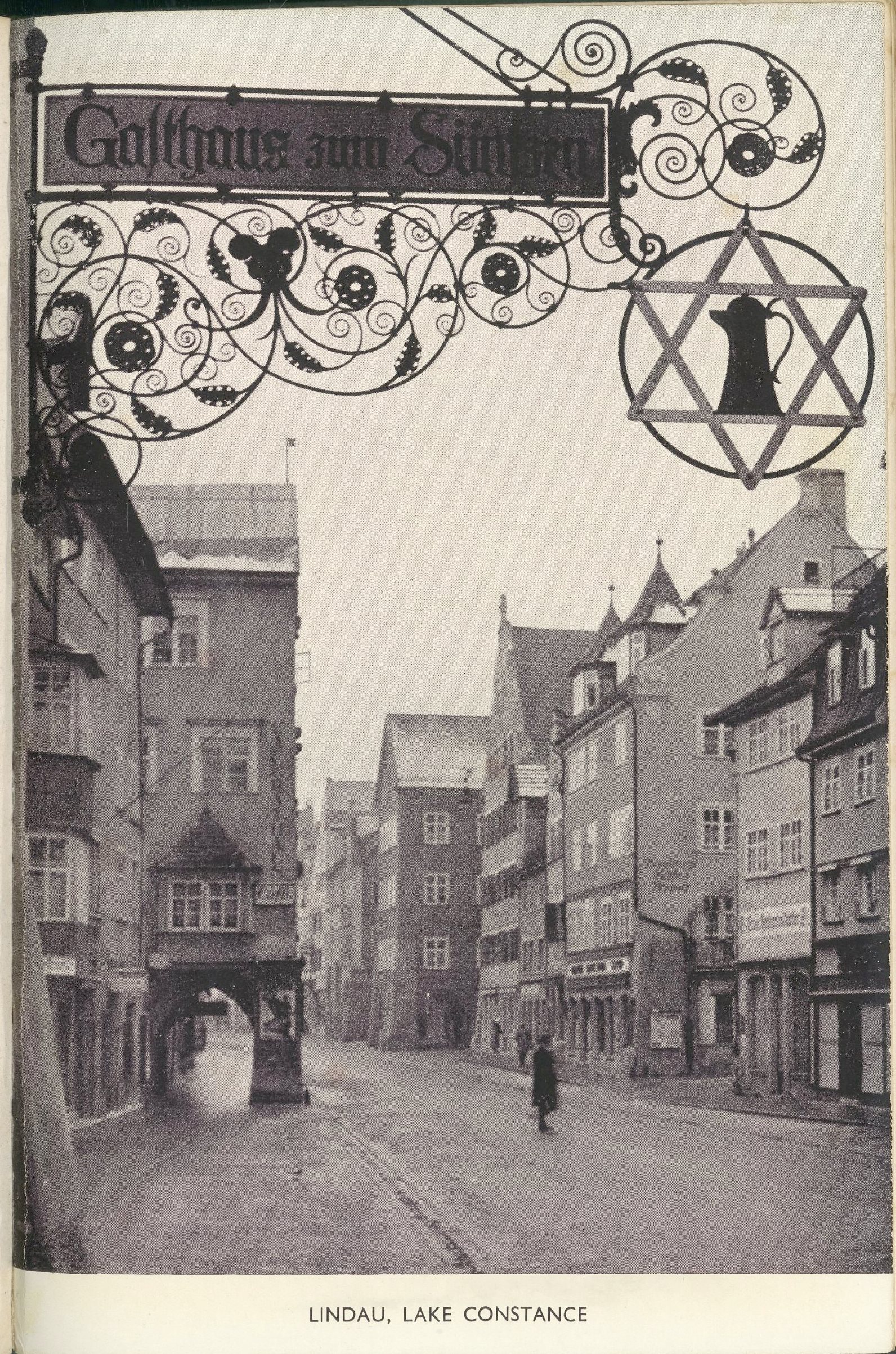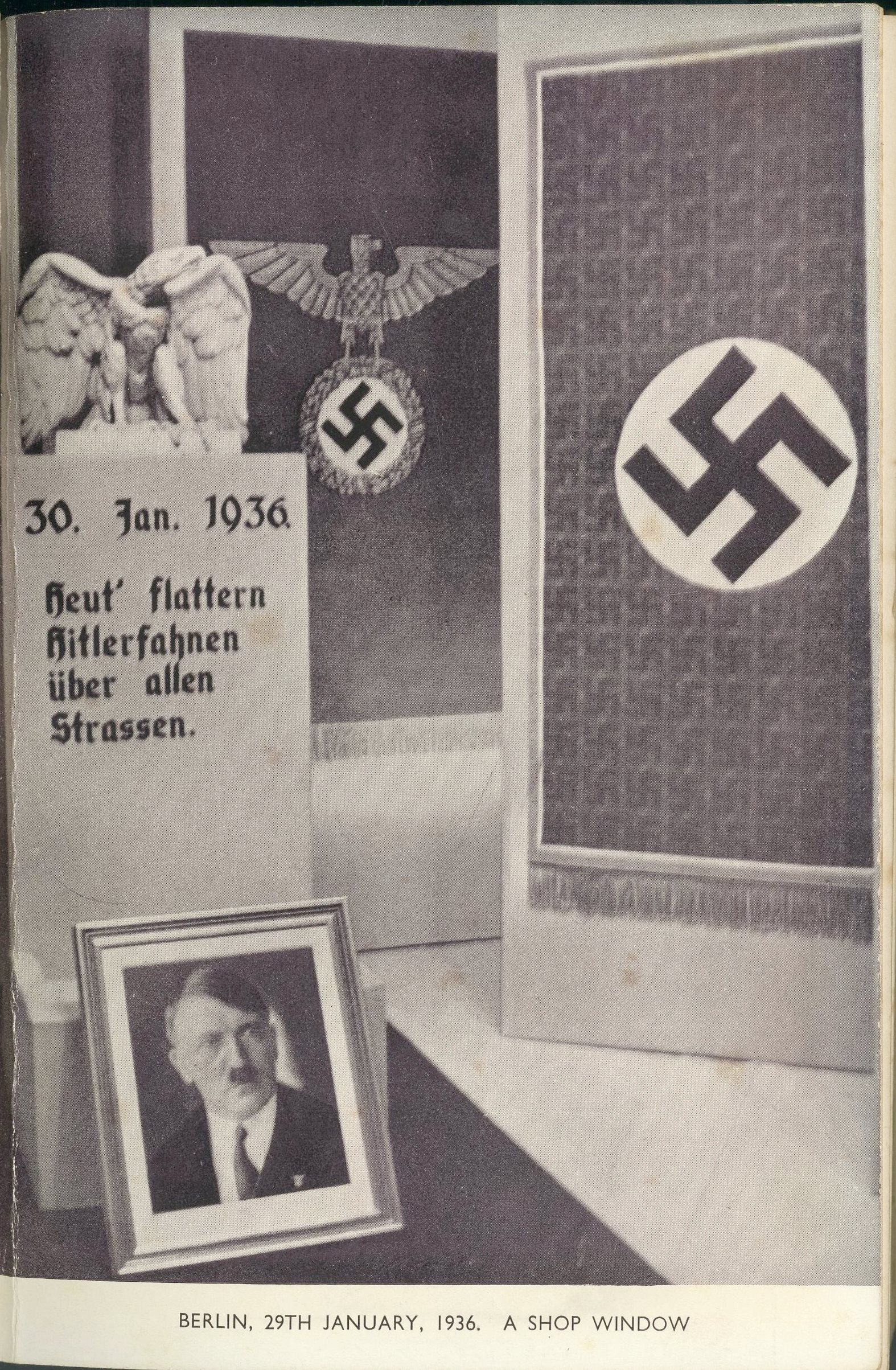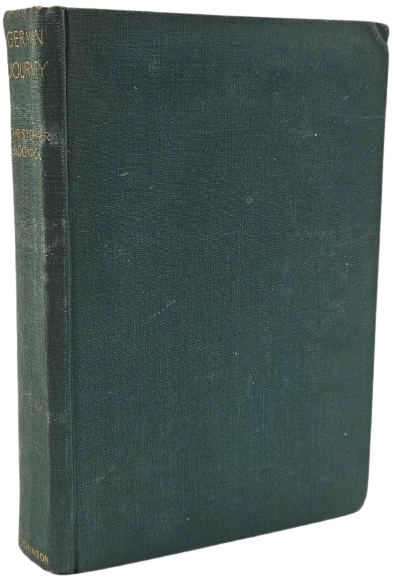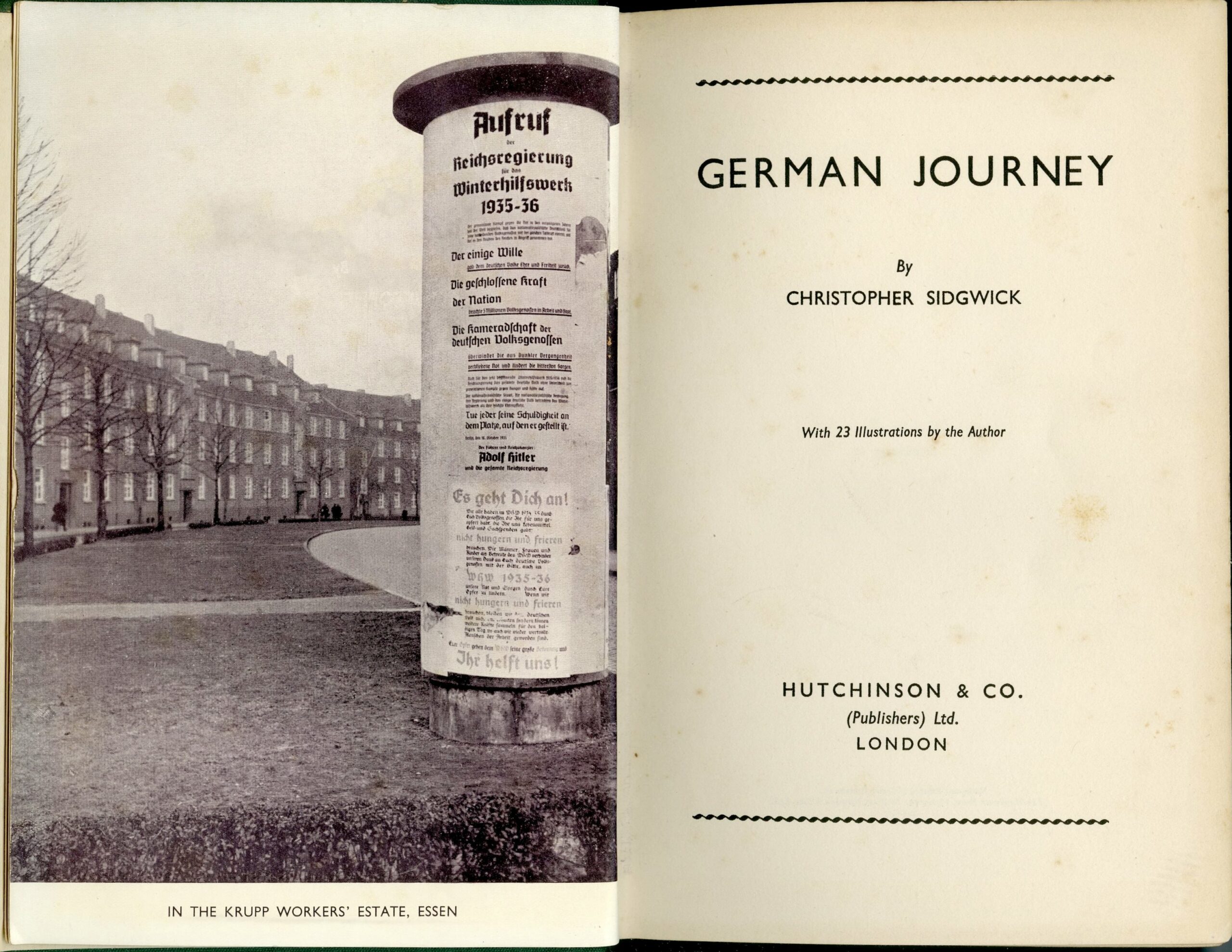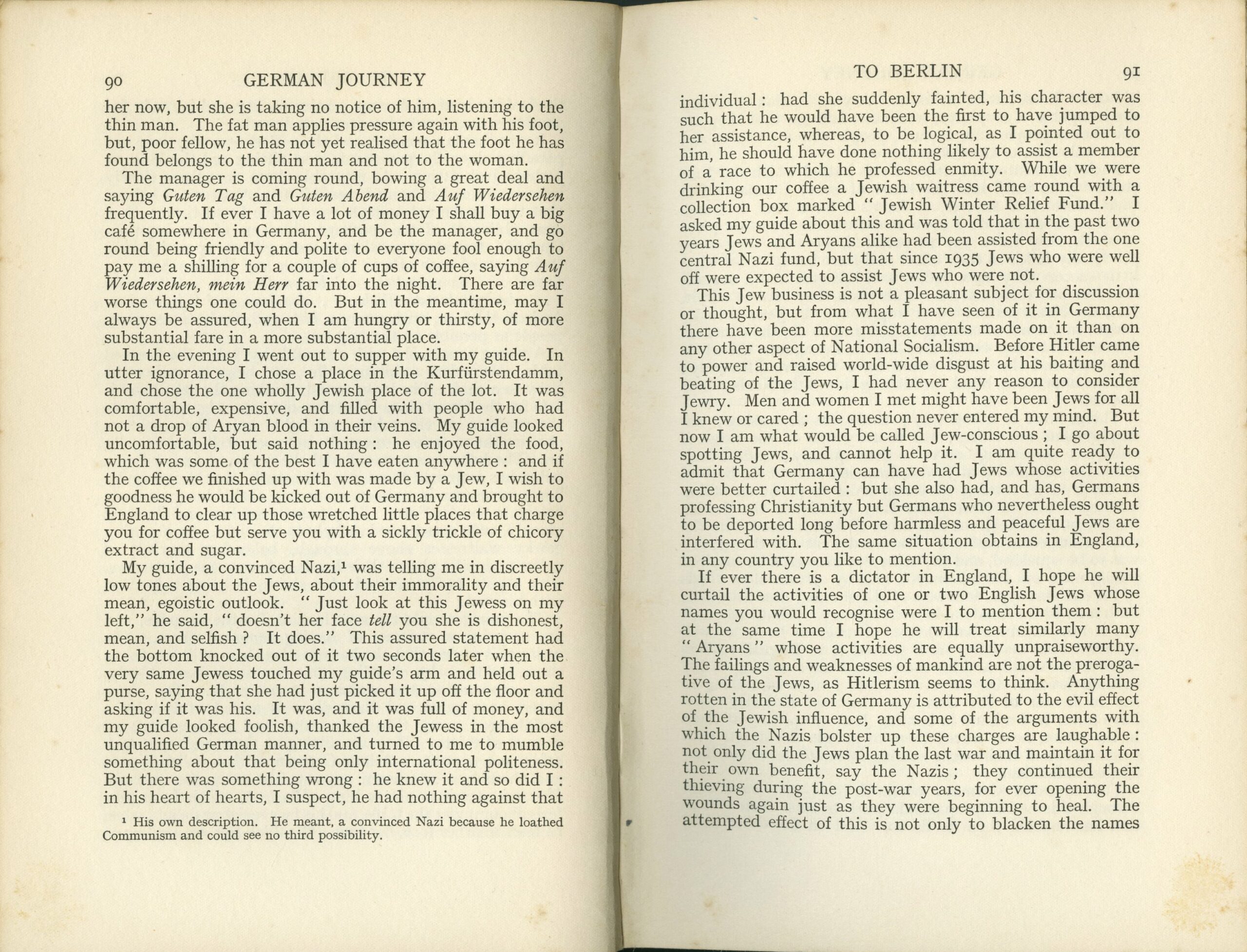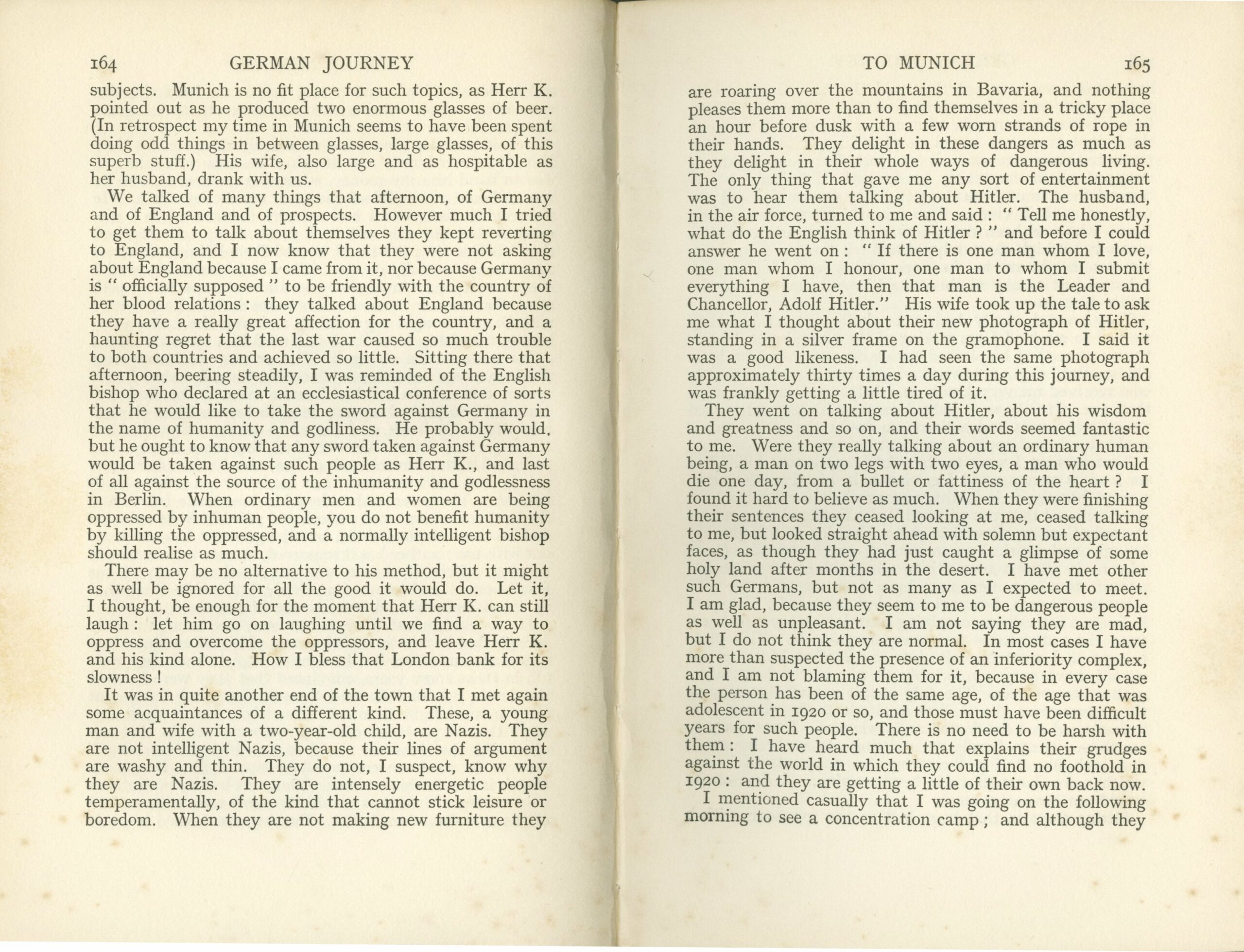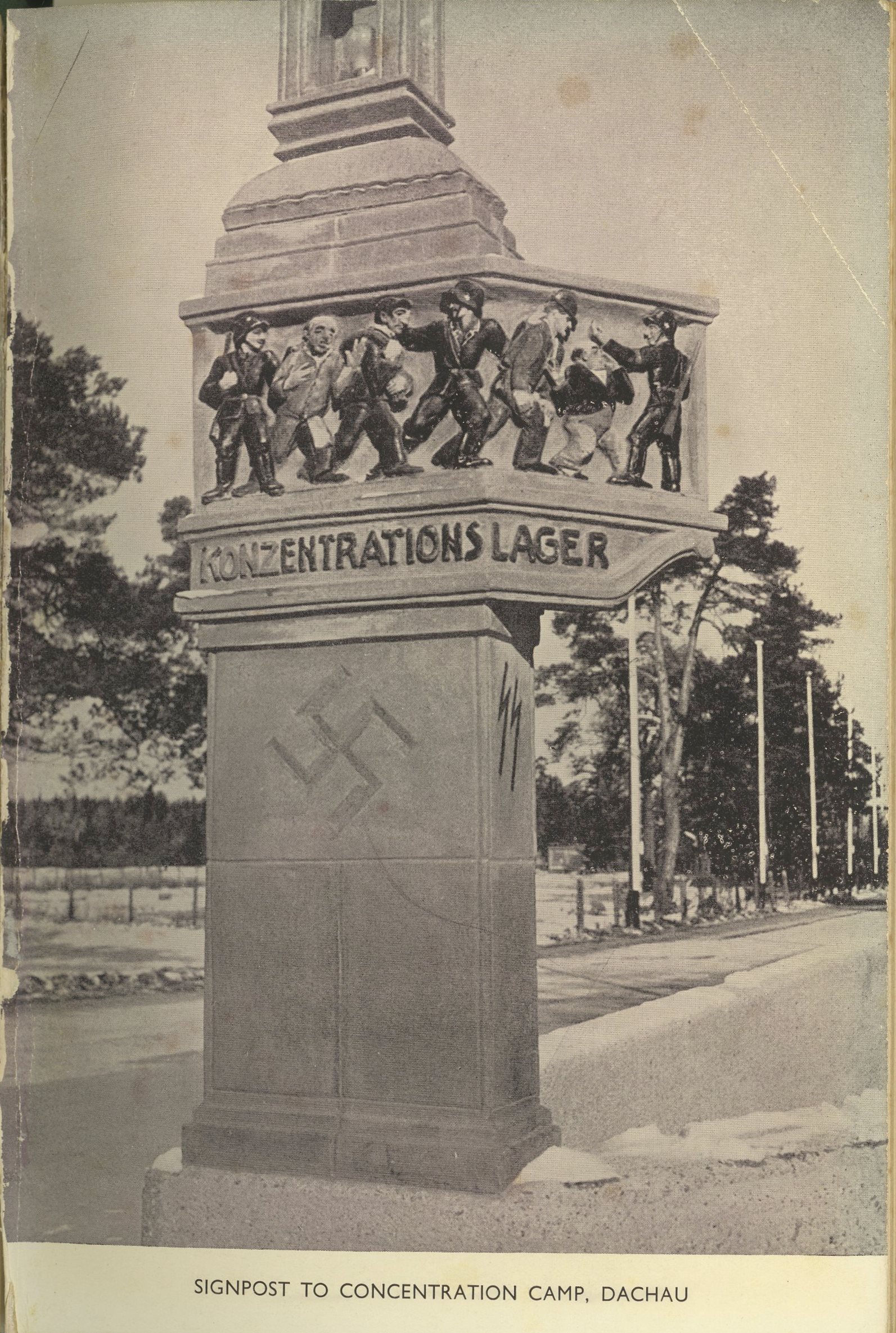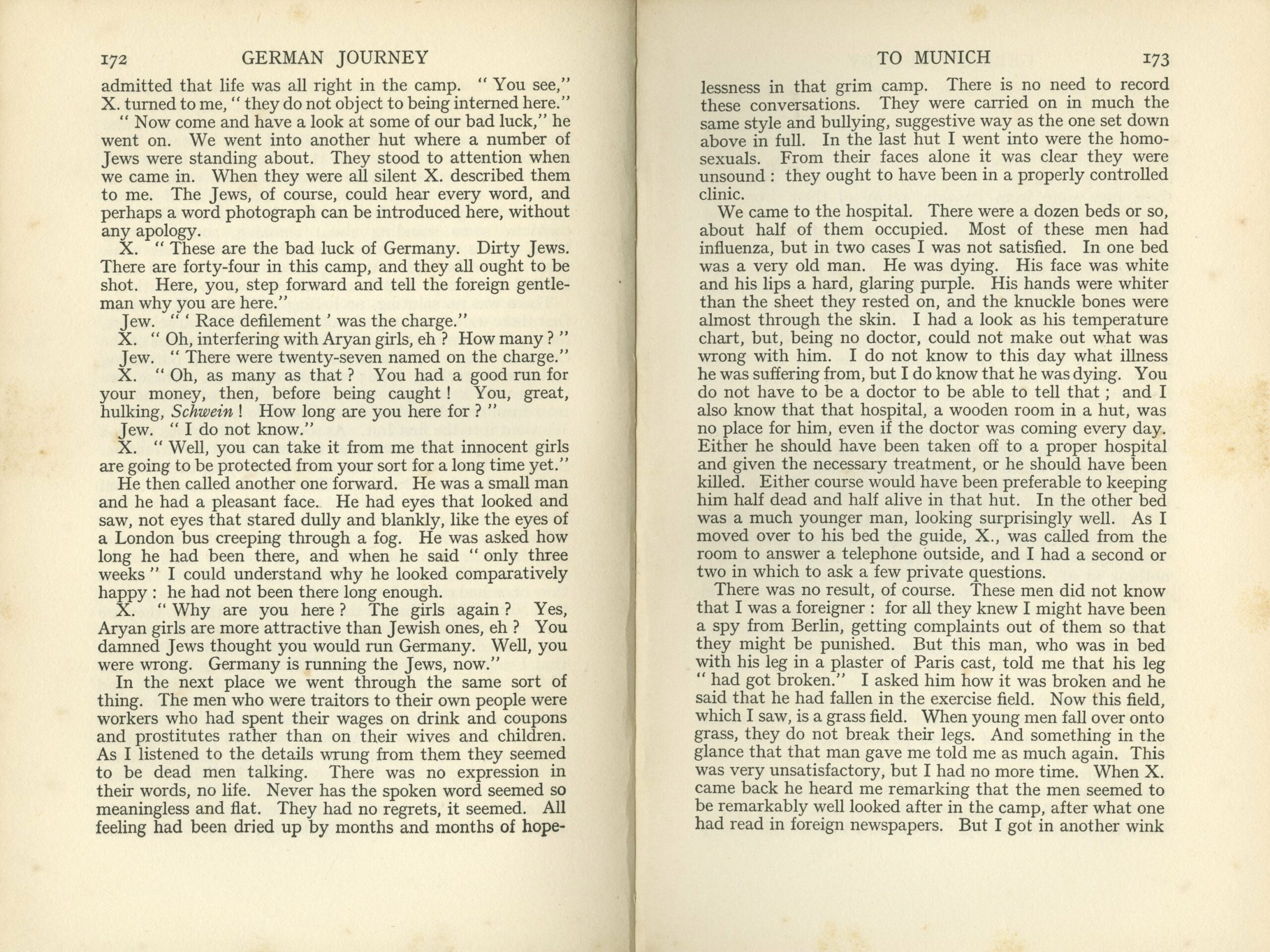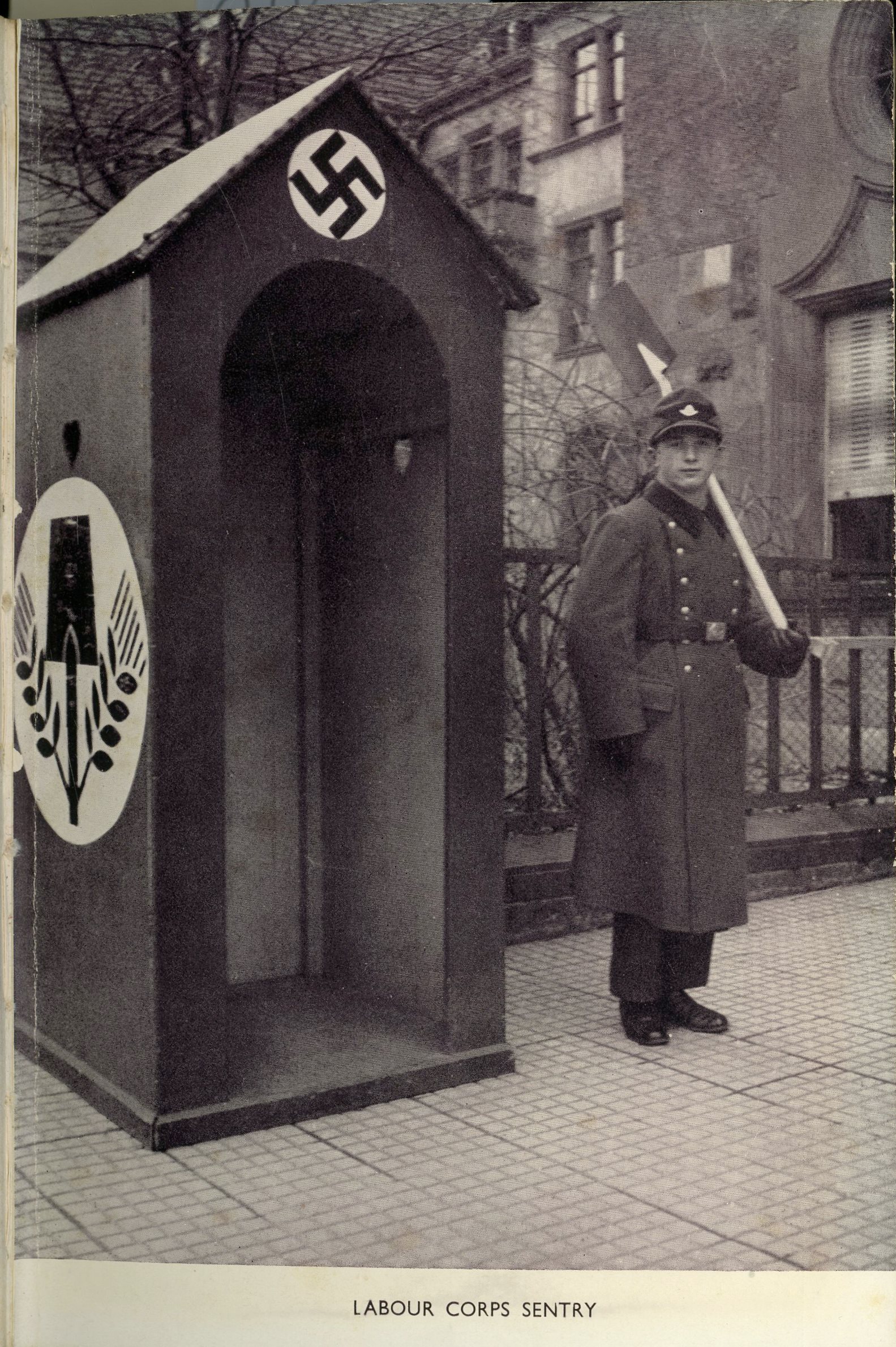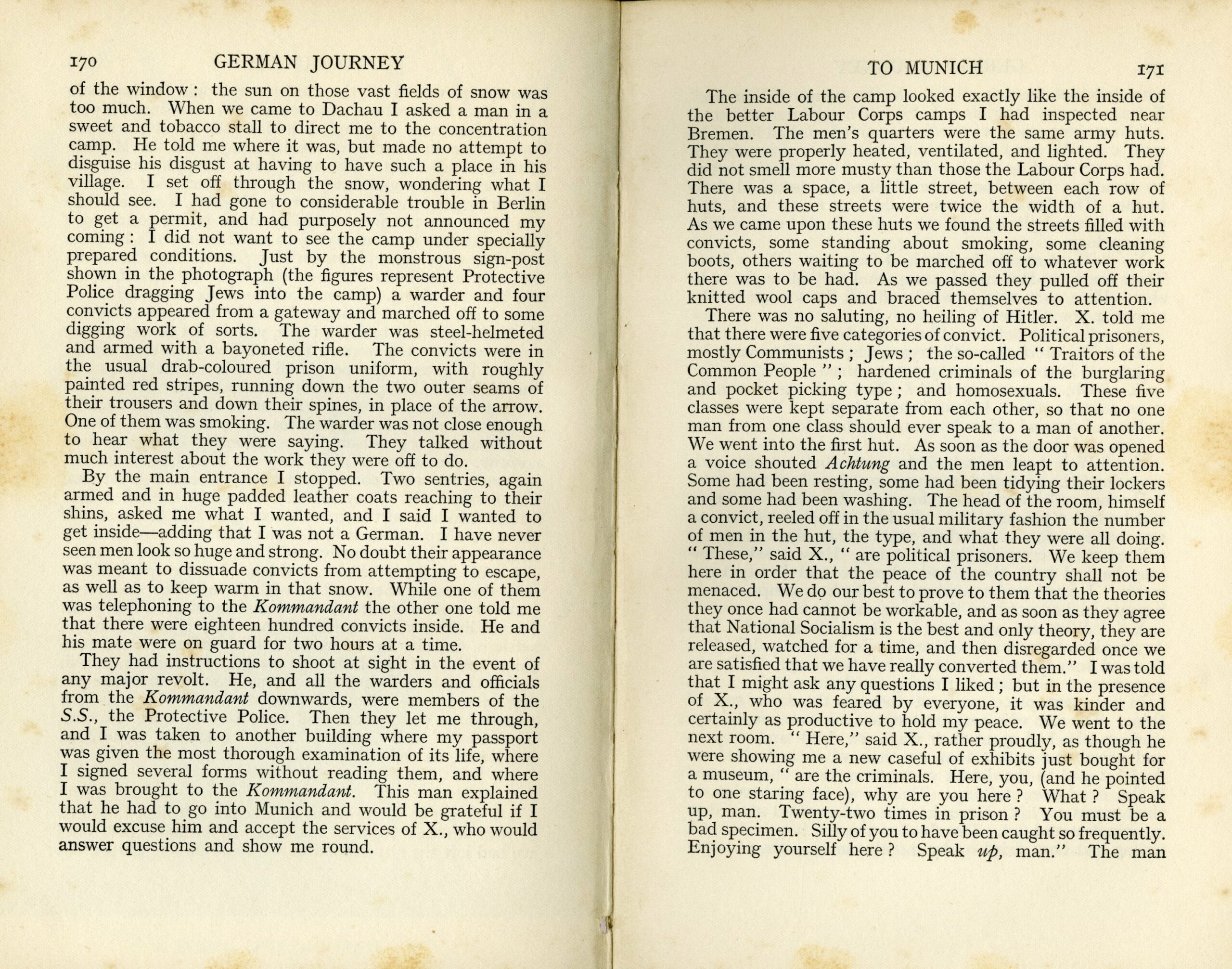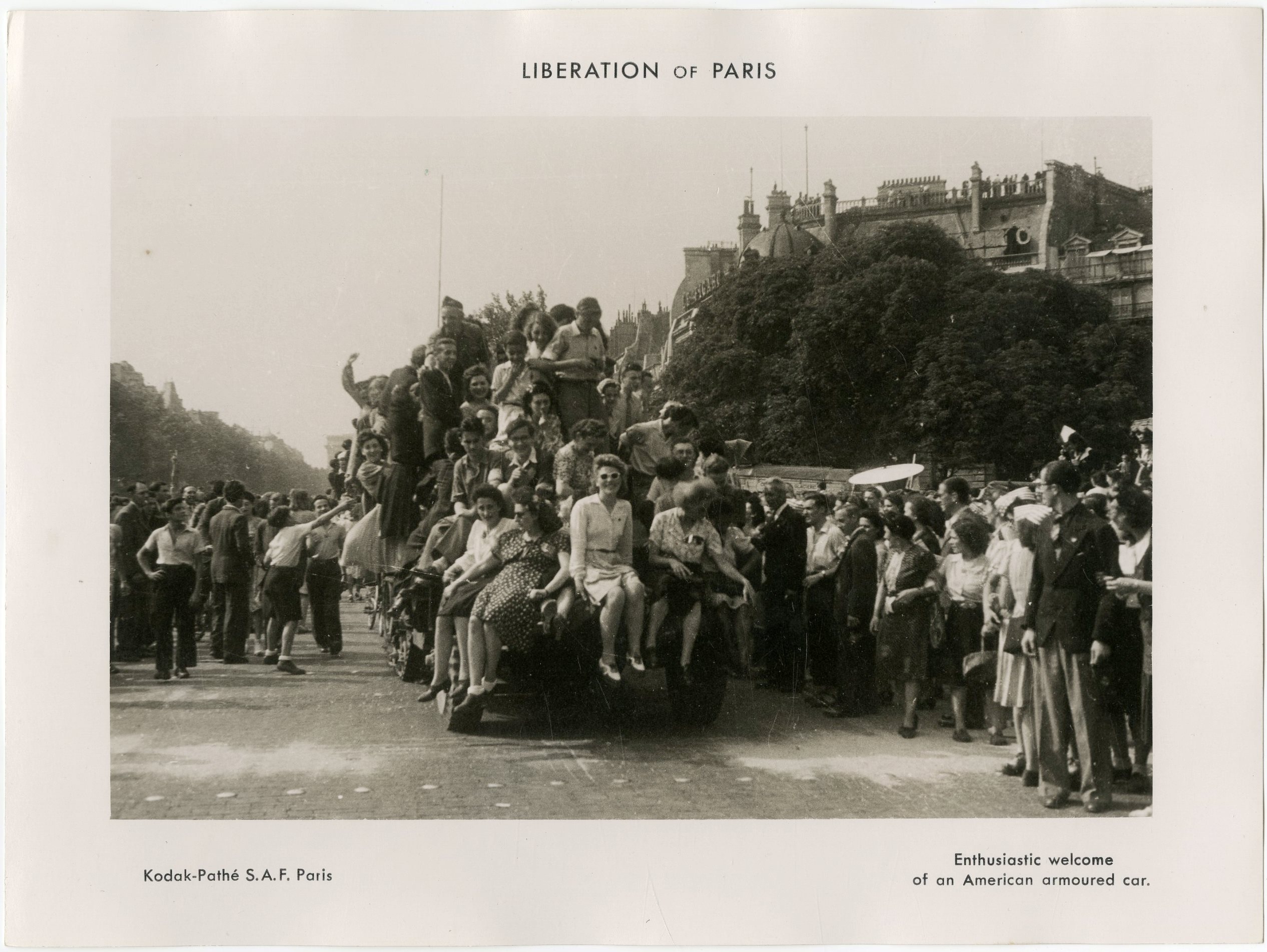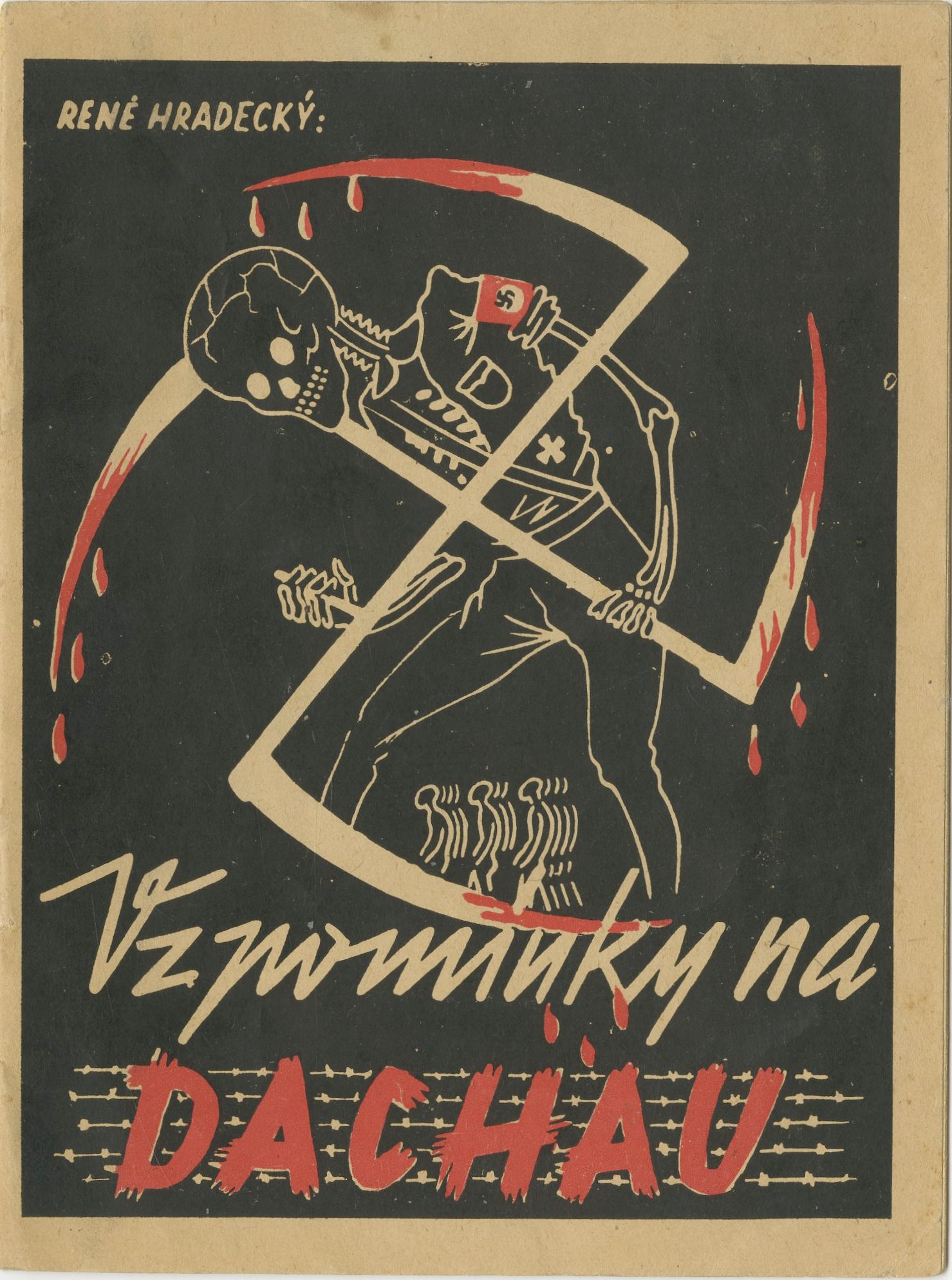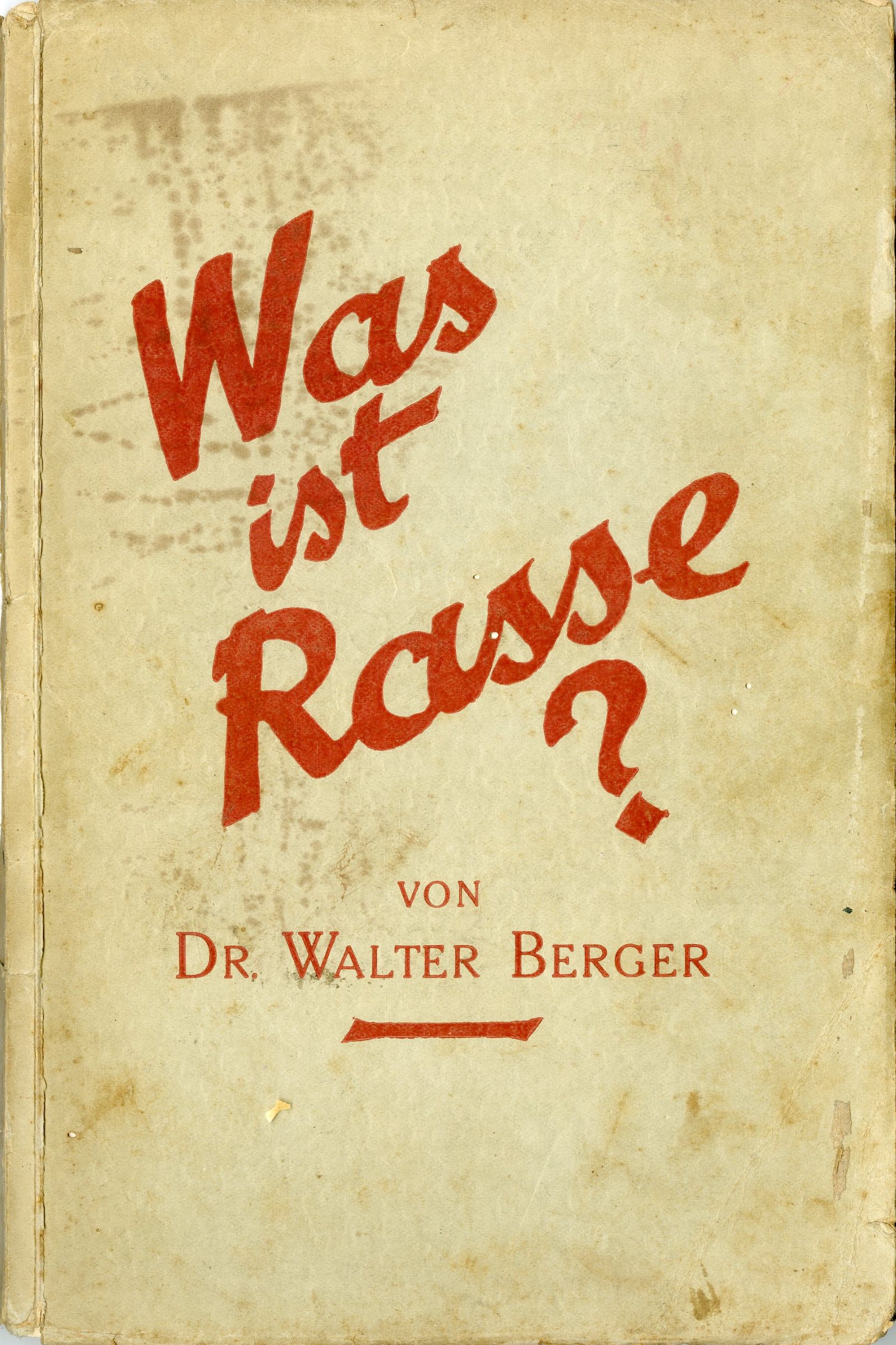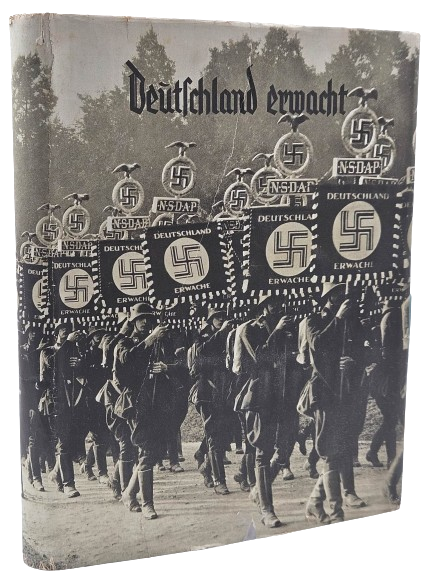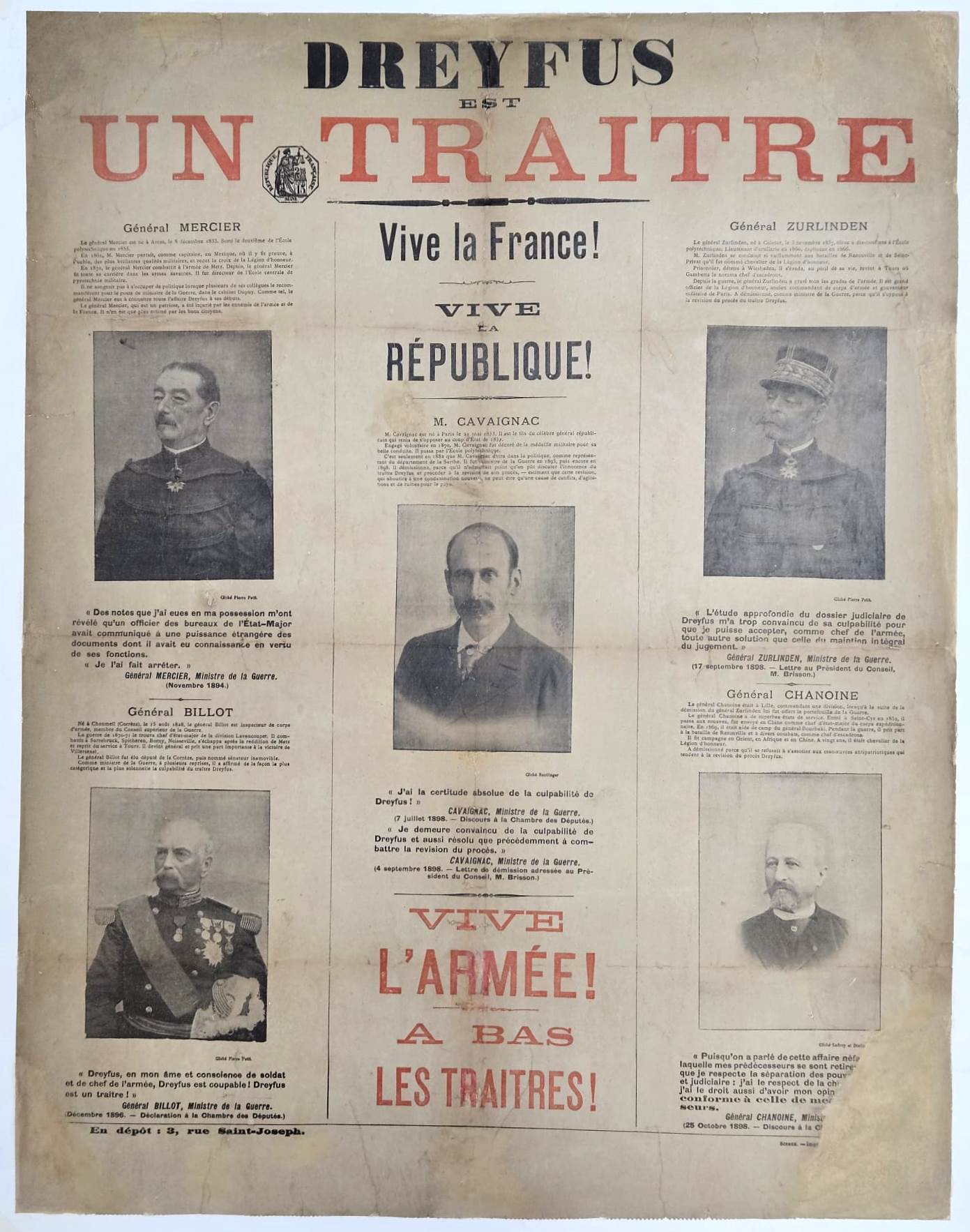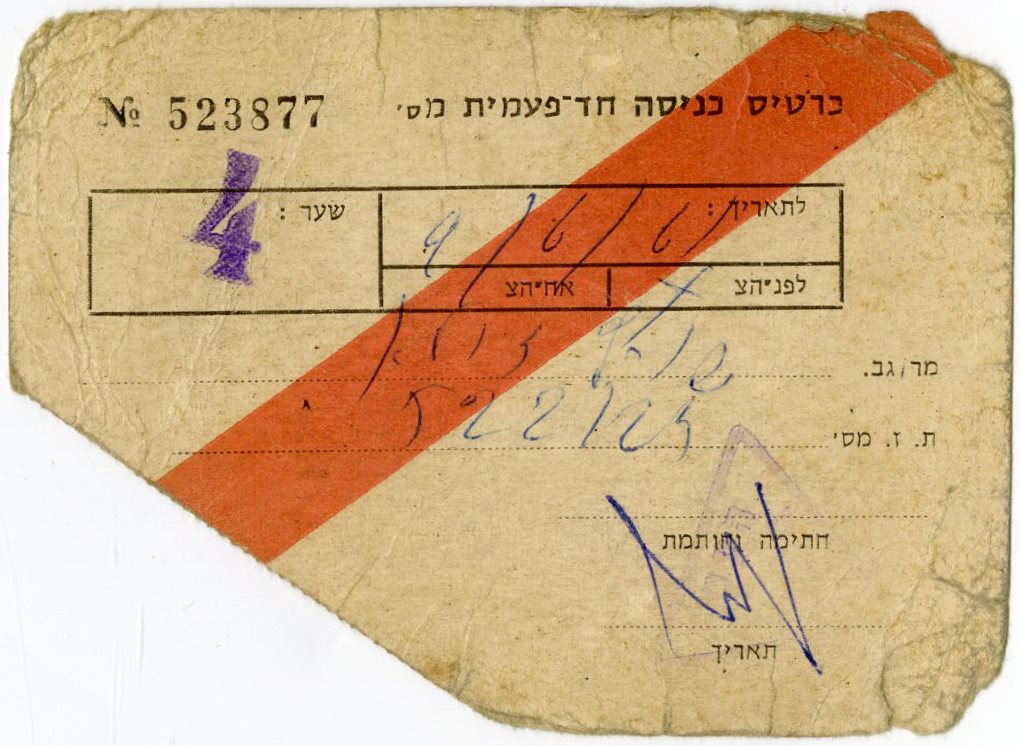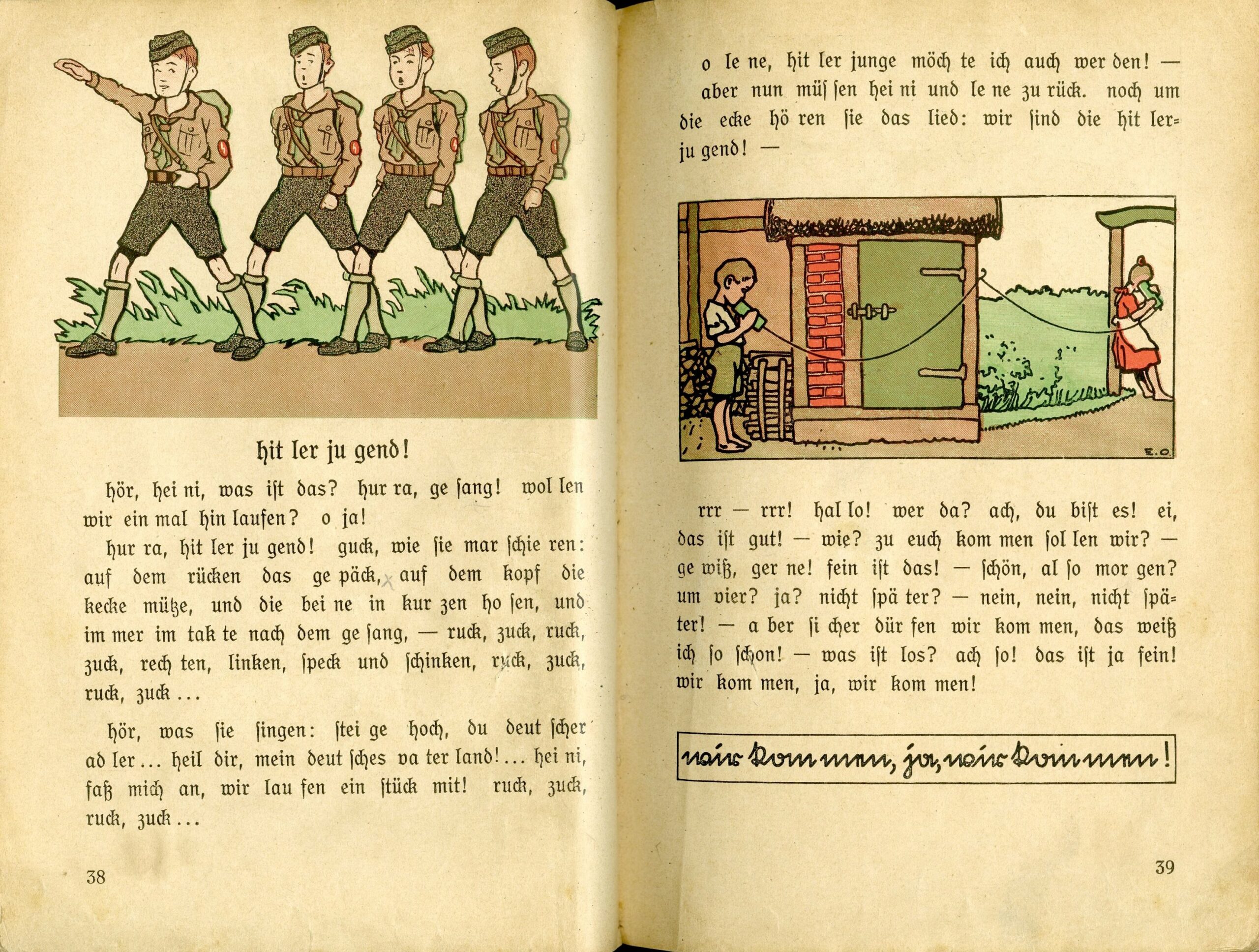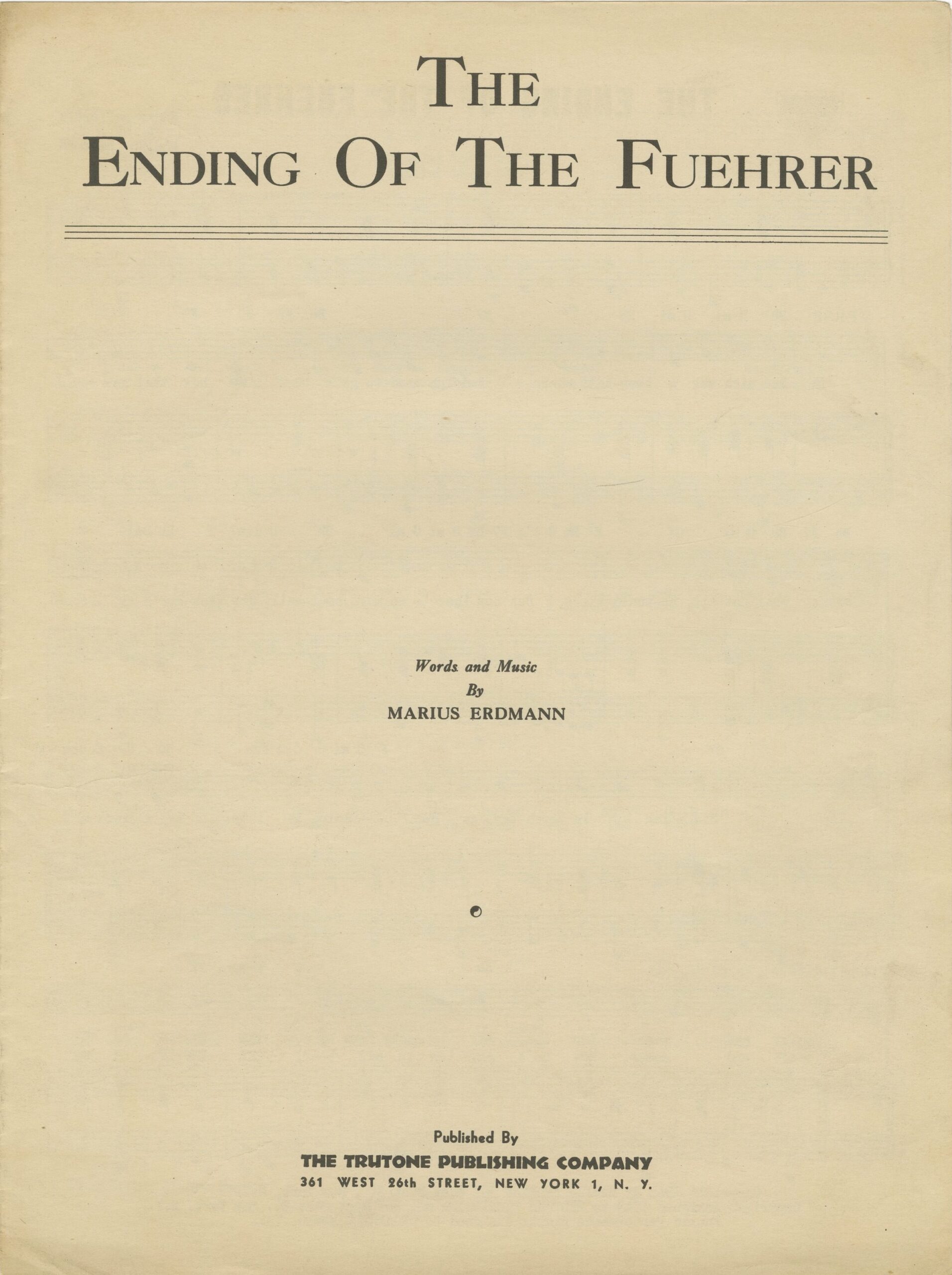GERMAN JOURNEY by Christopher Sidgwick, published by Hutchinson. London, 1936 - first edition. English. Documentation of an English tourist's visit to Nazi Germany under Hitler's rule in the mid-1930s when the mark of Nazi propaganda and hatred of Jews was evident everywhere, including a rare account of his visit to Dachau - the first Nazi concentration camp established by the Nazis - shortly after its opening, and a meeting with Jewish prisoners accused of race defilement. An extensive review of manifestations of Jew-hatred in German cities among different populations shortly before the actual implementation of the Final Solution plan. Accompanied by private photographs taken by the author himself.
Documentation of Christopher Sidgwick's visit shortly after touring German cities (Berlin, Cologne, Düsseldorf, Essen, Hamburg, Dresden, Leipzig, Nuremberg, and Bavaria) in the winter of 1935 during a period he calls "an ominous silence". At that time the Nazi regime consolidated its status among German cities and the question in the air was "what new move is Hitler planning?". At the beginning of the book, Christopher describes the purpose of his visit:
"I told myself gloomily, it is time for a cunning stroll through the murky streets, for a peek at life in the labor camps, in the concentration camps, in the home of the ordinary German. That was my intention on one of those crazy days at the end of December 1935. How likely I was to succeed, of course I could not know, but with no little excitement of anticipation I packed a bag with maps, ribbons, notes... and set off". During his visit to Germany, Christopher met many people from all walks of life, visited restaurants and cafes as well as public buildings of the German Reich, and directly describes the mood on the German street both from the German side and from the Jewish side.
Already upon arriving in Germany, he was surprised by the fact that everywhere he went he was greeted with "Heil Hitler" - at the airport, at the crossings between stations, at the entrance and exit of public buildings and more. Immediately he felt how Germany had totally become the state of one leader in a way so different from the situation during his previous visit about two years earlier. Upon arriving in Cologne, he describes the faces of the German people as serious, gloomy and pale. The bookstores are full of books about Hitler and Rosenberg. Everywhere he visited, he noticed a phenomenon he calls "isolation" - the German people are withdrawn into themselves, into the new ideals of Nazism, and seem unaware of the fact that outside there is another world, other peoples, and other cultures - the German public really believed that Germany was reborn with Adolf Hitler. There were places where he encountered blind adoration for the Führer, in one of them he heard a German girl express that Hitler is the product of the most superior race since the dawn of history. In Munich he spoke with Germans who claimed that Hitler was not destined to die. Among other things, he visited the Hitler Youth training camps in Hamburg, which he describes as "a war machine of snobbish young people", and met young people who repeatedly recite the "exhausting" German-Nazi ideals, as he put it.
During his visit to Berlin, he notes that he saw more Jews there than anywhere else in Germany, although it was there that Nazi hostility towards Jews was felt more than in other cities. He visited the "Propaganda Office" - the building from which Nazi propaganda headed by Joseph Goebbels emanated. He describes the propaganda office as a place that, more than engaged in spreading Nazi propaganda, is engaged in silencing any manifestations of opposition to Nazism. He describes his impression of the visit to the propaganda building:
"It is a somber and poisonous business this propaganda. Distorting, exaggerating, and misleading... I knew that everything I was told by the representative was an absolute lie... But it affects the entire electorate throughout Germany... I asked myself if there was any sanity left in Germany...".
On one winter day, Christopher went out with his German guide to a restaurant and sat down at a table without noticing that he was in the "for Jews only" section. And so he describes what happened there:
"My guide, a convinced Nazi, told me in discreet low tones about the Jews, about their immorality and their evil and selfish outlook. "Just look at that Jewess to my left, " he said, "doesn't her face tell you that she is dishonest, wicked and selfish?" This confident statement fell from her two seconds later, when that very Jewess touched my guide's arm and held out a wallet, saying that she had simply picked it up off the floor and asked if it was his. It was his, and it was full of money, and my guide looked foolish, thanked the Jewess in the most unauthorized German manner, and turned to me to mutter something about it being just international politeness...".
During his tours of the city streets, Christopher witnessed several times the Nazis harassing Jewish shop owners in Berlin, vandalizing merchandise, beatings, and various anti-Semitic incidents. Christopher notes that the German economy is dependent on Jews in a way that the boycott of Jewish products is only partially successful, and that the economic circumstances in Germany have made the boycott practically impossible. However, he met many Germans who reflected on the current situation and it was evident that they would have preferred to return to pre-Hitler Germany. According to him, almost every German over the age of 40 expressed discontent with the totalitarianism imposed on Germany under Hitler's leadership.
One of the fascinating chapters in the book is Christopher's visit to the Dachau camp. One of the purposes of his visit was to check if the rumors about what was happening in Dachau were true. He does not detail in the book how he obtained permission to enter the camp, except for the fact that only after he signed a few forms that he did not really delve into their content, was he allowed to enter the camp grounds. At the camp gate he met sturdy German guards whose appearance was meant to deter potential escapees. In the camp grounds itself he saw prisoners working, or on standby for work, while accompanied by one of the Nazi clerks who explained to him that Dachau is actually an "educational camp", explaining: "These are political prisoners. We keep them here so that the peace of the state is not harmed. We do our best to prove to them that the theories they once had are not feasible, and as soon as they agree that Nazism is the only and best theory, they are released...". The German representative (referred to in the book as X) continued with him to the Jews' barracks where a number of Jews stood in fear without moving, and this is how the German presented the Jews to him:
"These are Germany's bad luck. Filthy Jews. There are forty-four in this camp, and they should all be shot. Here, you, step forward why are you here. Jew. Race defilement was the accusation. "Ah, to harass Aryan girls, eh?... Then he called another one forward. He was a small man and he had a pleasant face. He had eyes that looked and saw, not eyes that stared dully and blankly... He was asked how long he had been there, and when he said "only three weeks" I could understand why he looked relatively happy: he hadn't been there long enough. "Why are you here? Girls again? Yes, Aryan girls are more attractive than Jewesses, eh? Damn Jews thought you'd run Germany. Well, you were wrong. Germany runs the Jews, now..." said X. Christopher continued with him to other sections of the camp, and throughout the chapter his shock is evident in the face of the Nazi thuggery he encountered for the first time in his life. He arrived at the camp hospital and saw prisoners with amputated legs and wounded in various parts of the body with wounds that appeared to be injuries, and judging by their dim and hinted looks and the short sentences with which they answered his questions, he slowly began to internalize that terrible atrocities were being carried out in Dachau, just as the rumors had told. After a three-hour visit to Dachau, he returned to Munich, convinced that the German concentration camp was the most severe phenomenon he had ever encountered. Christopher returned to England with grave concerns about the future of Germany, and particularly about the future of the Jews. The visit made him realize that the Nazis were "serious" in their intentions regarding the persecution of the Jews, and describes it as the most extreme phenomenon he has ever encountered - "hate hate, and hate again", as he hastens to return home to free Britain.
An extremely important firsthand account of the time when the Nazi dictatorship and hatred of Jews ripened among the German population.
The book is accompanied by 26 photo plates taken by Christopher himself throughout Germany, including: the entrance to a private house in Oberammergau with a sign on the door: "Jews are not wanted in this house", a boy and girl in "Hitler Youth", signage to the Dachau concentration camp, a shop window selling Nazi items, various photographs of street scenes, and more.
284 p. + 26 full-page photo plates. Stains on some of the pages. Good condition.
